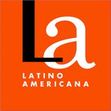Effort-Reward imbalance in a company in sector during the SARS CoV2 health emergency / Desequilibrio Esfuerzo-Recompensa en una empresa del sector esencial durante la Emergencia Sanitaria
Resumen
Introduction: During the contingency, in Mexico, some economic activities during this emergency did not stop work activities because they belonged to essential branches; therefore, these activities require greater demand from workers.
Methods: For this descriptive research, 128 workers were studied in a company of essential branch in which the Siegrist Effort-Reward Imbalance (ERI) questionnaire was applied, evaluating the effort-reward and over-involvement as well as; the level of stress presented by the workers was also evaluated.
Results: An effort-reward imbalance was perceived in operative workers, the administrative personnel did not present an imbalance concerning their task. The level of stress was present in 79% of operative and operative-administrative workers; 21% of administrative personnel were in a pre-stress state.
Conclusions: The preventive measures for workers in administrative operational areas, for those individuals under stress, are: to reduce the work pace and accumulation of work, prioritize the most important tasks, in the same way, to implement activities that involve physical activity outdoors, provide psychological support services; as well as to increase the reward.
##plugins.generic.usageStats.downloads##
Citas
SIEGRIST,J., STARKE, D., CHANDOLA, T., GODIN, I., MARMOT., NIEDHAMMER, I. & PETER, R. (2004). THE MEASURE OF EFFORT-REWARD IMBALANCE ATWORK:EUROPEAN COMPARISONS SOCIAL SCIENCE & MEDICINE. P. 1483-1499.
TORRES TORIJA, CLAUDIA SANTILLAN. (2020). EL IMPACTO PSICOLÓGICO DE LA PANDEMIA DE COVID 19 EN MÉXICO. OBSERVATORIO DE LAS CIENCIAS SOCIALES. (DISPONIBLE EN:HTTPS://WWW.COMECSO.COM/WP-CONTENT/UPLOADS/2020/08/COVID-10-SANTILLAN.PDF) [CONSULTADO 00 DE 00 DEL 2021]
LÓPEZ G. A., AYENSA V. J., (2008). UN MÉTODO PARA ANTICIPARSE AL ESTRÉS LABORAL: MODELO DE SIEGRIST (I). GESTIÓN PRÁCTICA DE RIESGOS LABORALES. P. 52-59
LÓPEZ G., FIDALGO F. & SIEGRIST J. (2005). EL TRABAJO Y SUS REPERCUCIONES EN LA SALUD EL MODEL. CALIDAD ASISTENCIAL. P.165-170.
NIEDHHAMMER, SIEGRIST J., LANDRE M. F., GOLDBERG M., & LECLERC A., (2000). ÉTUDE DES QUALITÉS PSYCHOMÉTRIQUES DE LA VERSIÓN FRANCAISE DU MODÉLE DU DÉSÉQUILIBRE EFFORTS/REÉCOMPENSES. REV EPIDÉM MASON. P. 419-437
TRIRADO G., LLORENTE A. M & TOPA G. (2019). DESEQUILIBRIO ESFUERZO-RECOMPENSA Y QUEJAS SUBJETIVAS DE SALUD: ESTUDIO EXPLORATORIO ENTRE MÉDICOS EN ESPAÑA. EUROPEAN JOURNAL OF INVESTIGATION IN HEALTH. P.59-70.

Esta obra está bajo licencia internacional Creative Commons Reconocimiento-NoComercial-CompartirIgual 4.0.
Al proponer un trabajo para su publicación, los autores aceptan las condiciones contenidas en las presentes normas de la revista Red de Investigación en Salud en el Trabajo y conservan los derechos patrimoniales sobre el artículo en cuestión, a fin de que ésta lo edite, publique, reproduzca, difunda, comercialice, traduzca o autorice su traducción a cualquier idioma.
Los artículos aceptados serán publicados en la revista Red de Investigación en Salud en el Trabajo bajo una licencia de Creative Commons Reconocimiento-NoComercial-CompartirIgual 4.0 Internacional.
Los trabajos propuestos deberán ser originales e inéditos, y no podrán presentarse a ninguna otra revista mientras se encuentren sometidos a la consideración de la revista Red de Investigación en Salud en el Trabajo. También se reciben trabajos completos publicados previamente en forma de resumen, o trabajos no publicados presentados en congresos o seminarios.
Todos los trabajos serán publicados con pleno conocimiento de los autores.
Los artículos firmados son responsabilidad de los autores y no necesariamente reflejan la opinión de la revista, o de la institución a la que están afiliados los autores.















